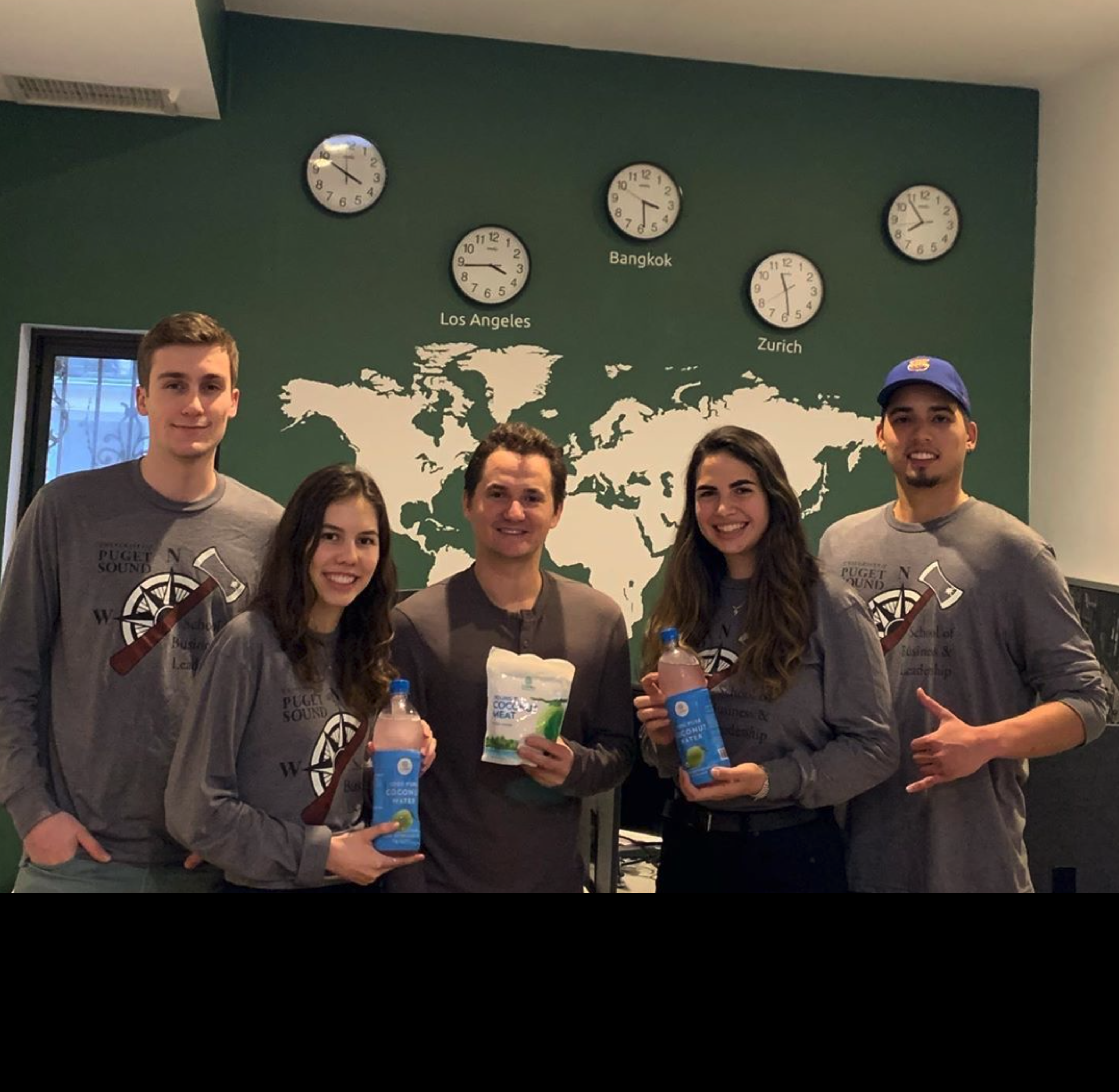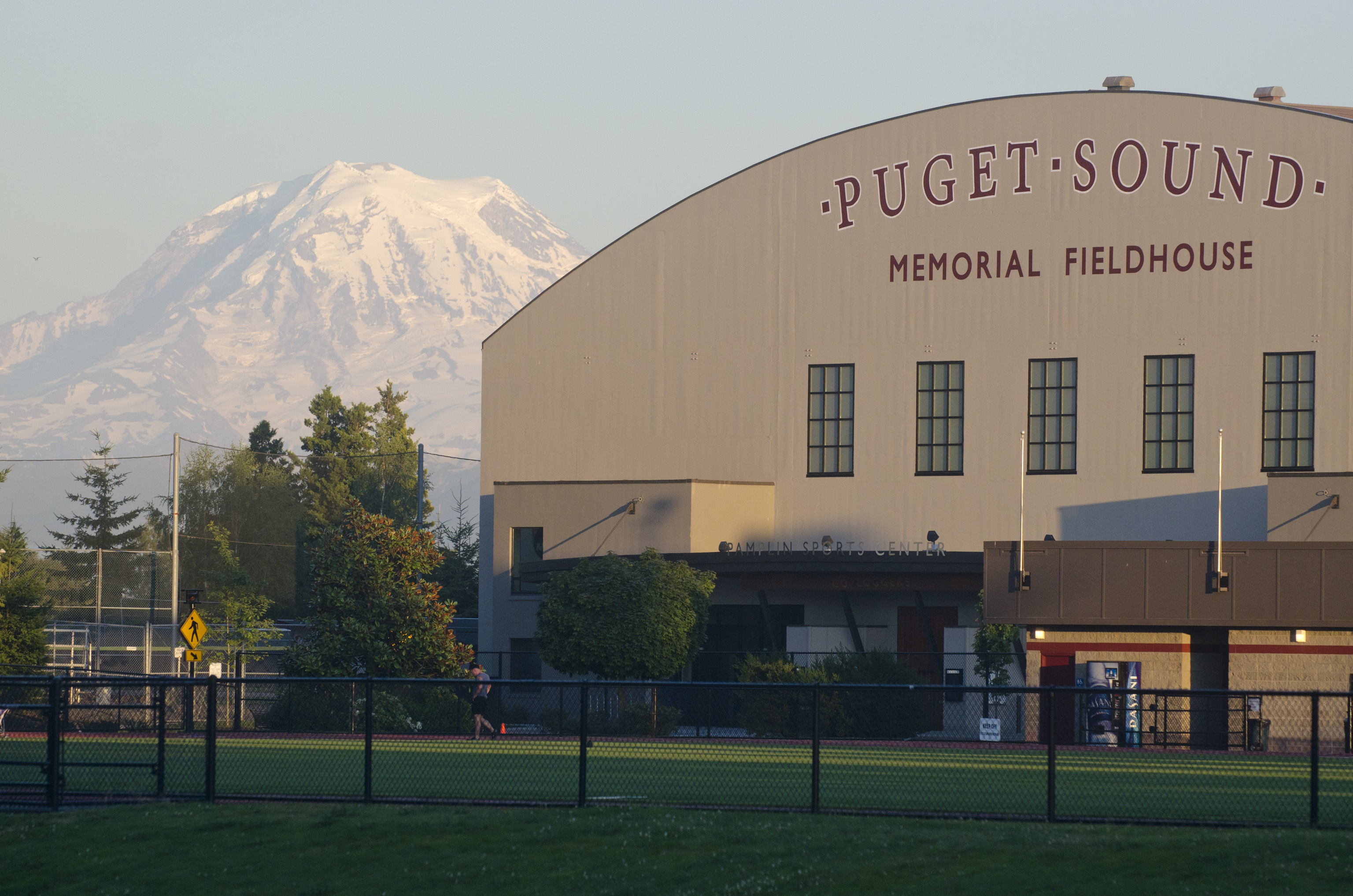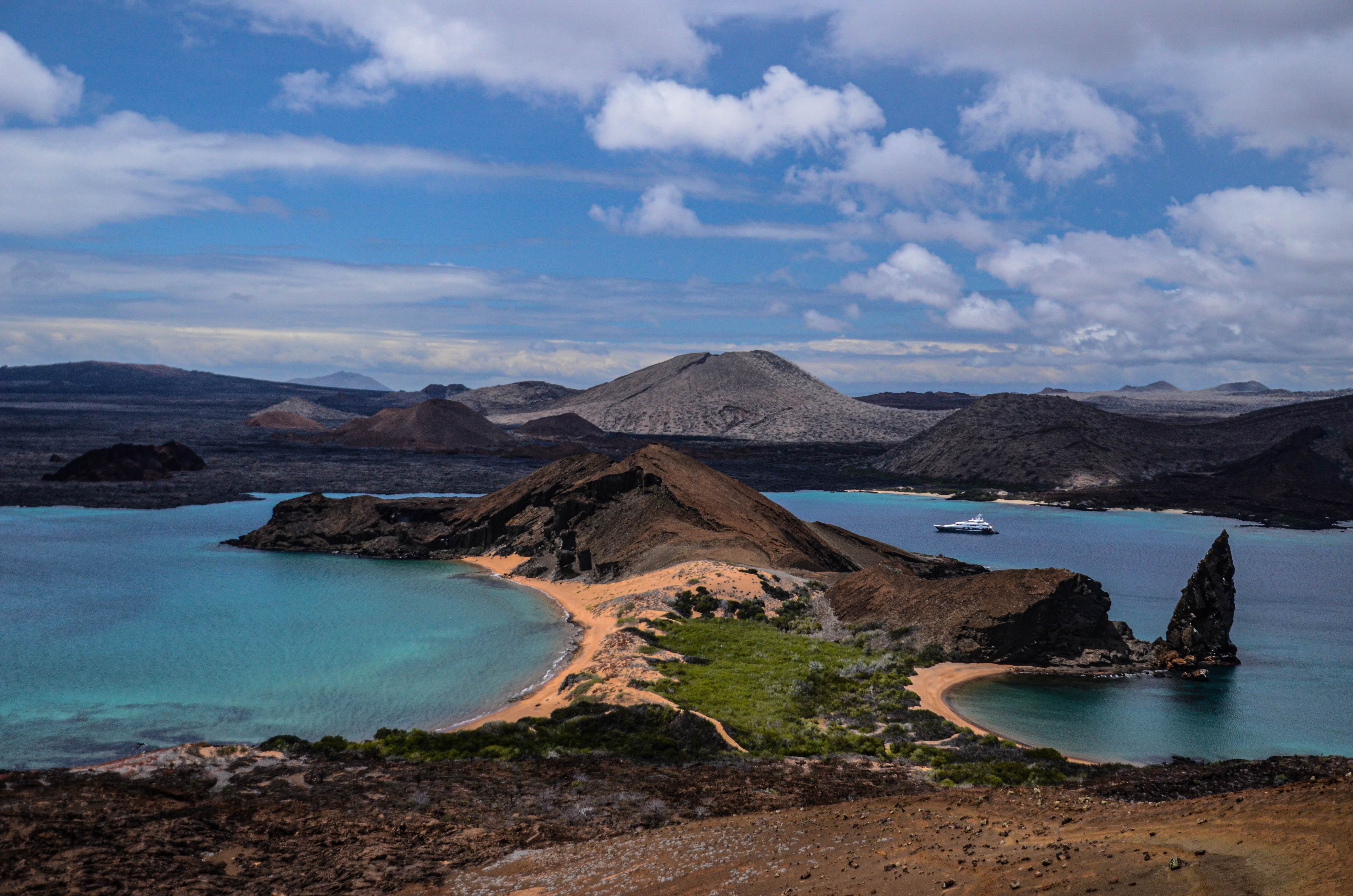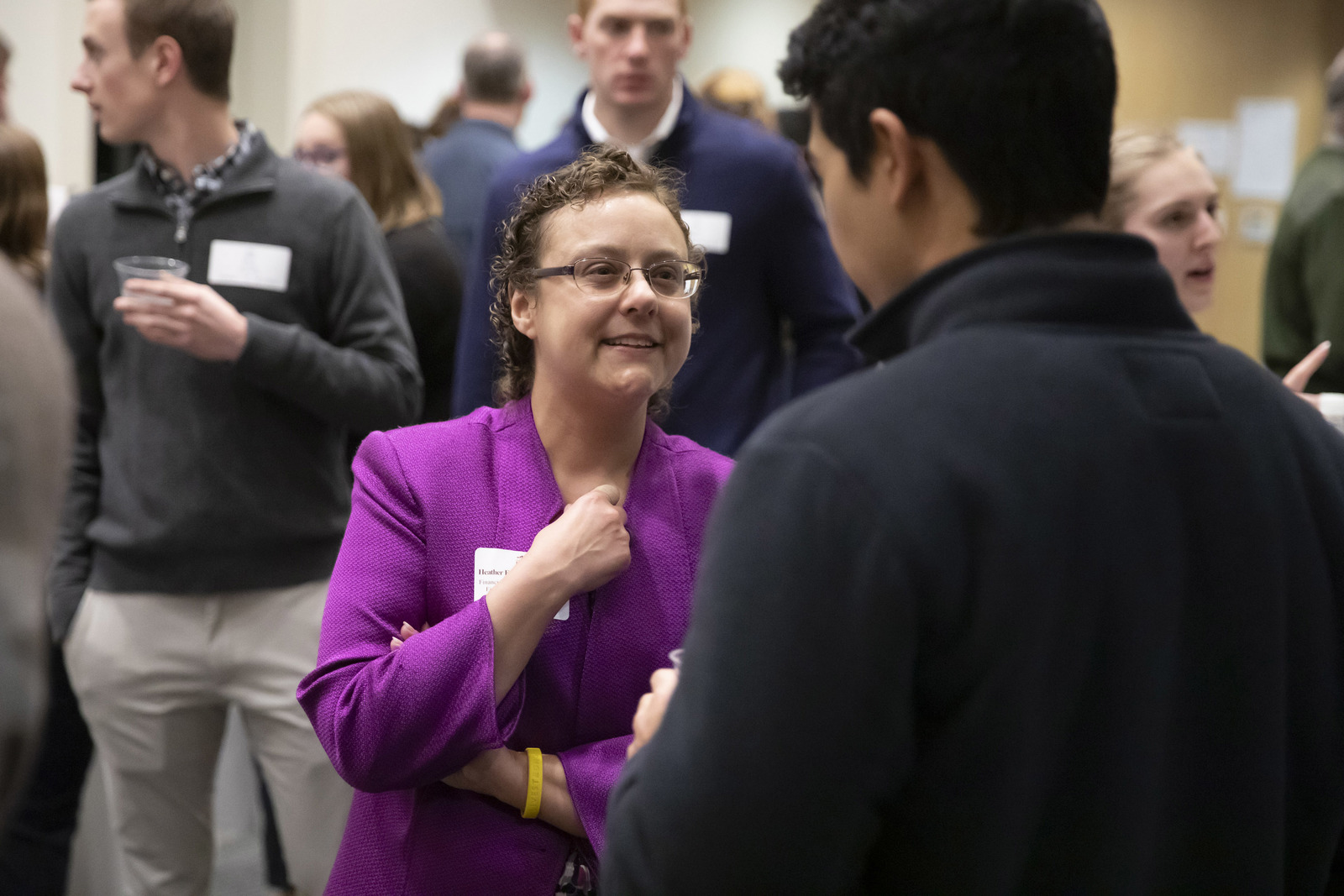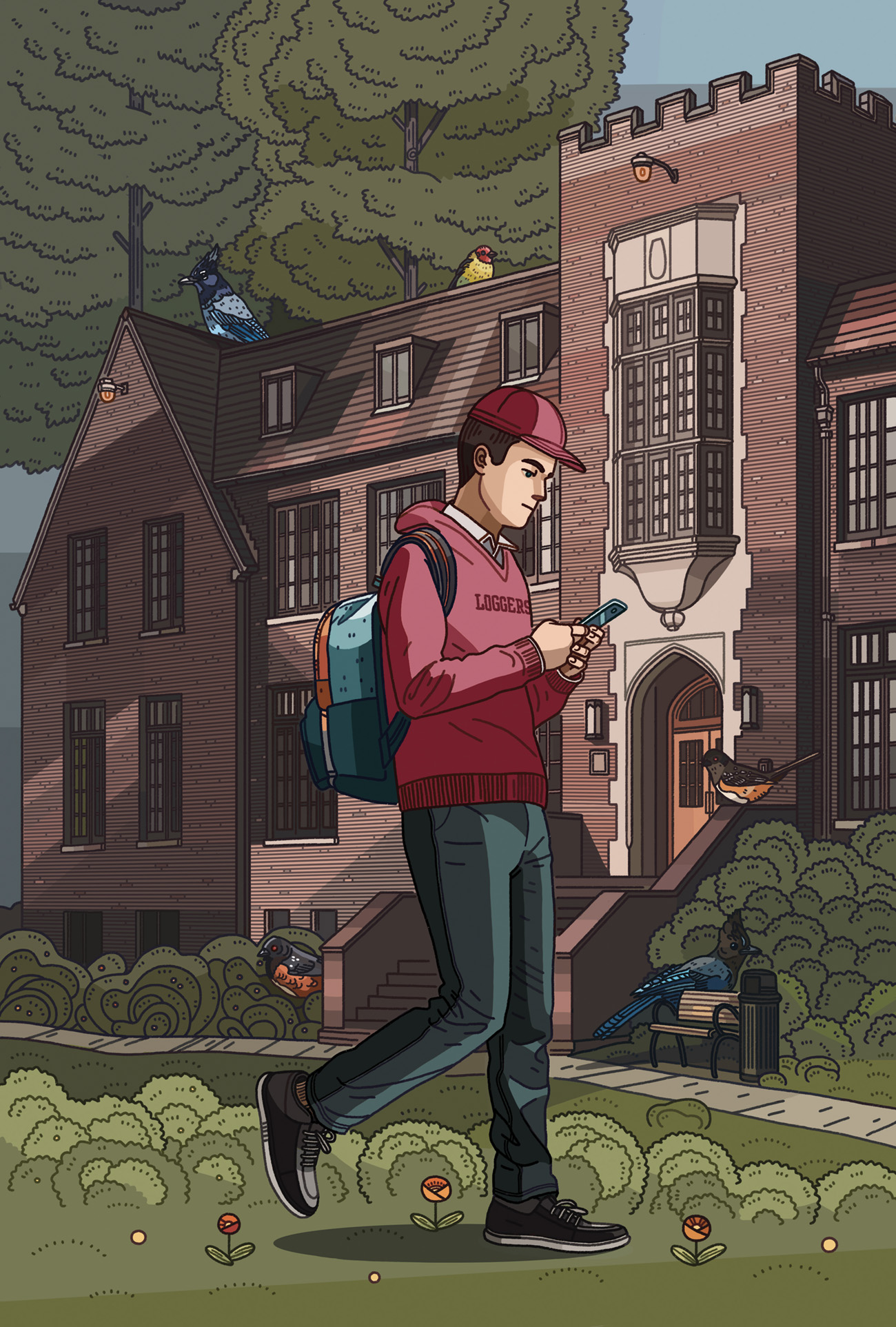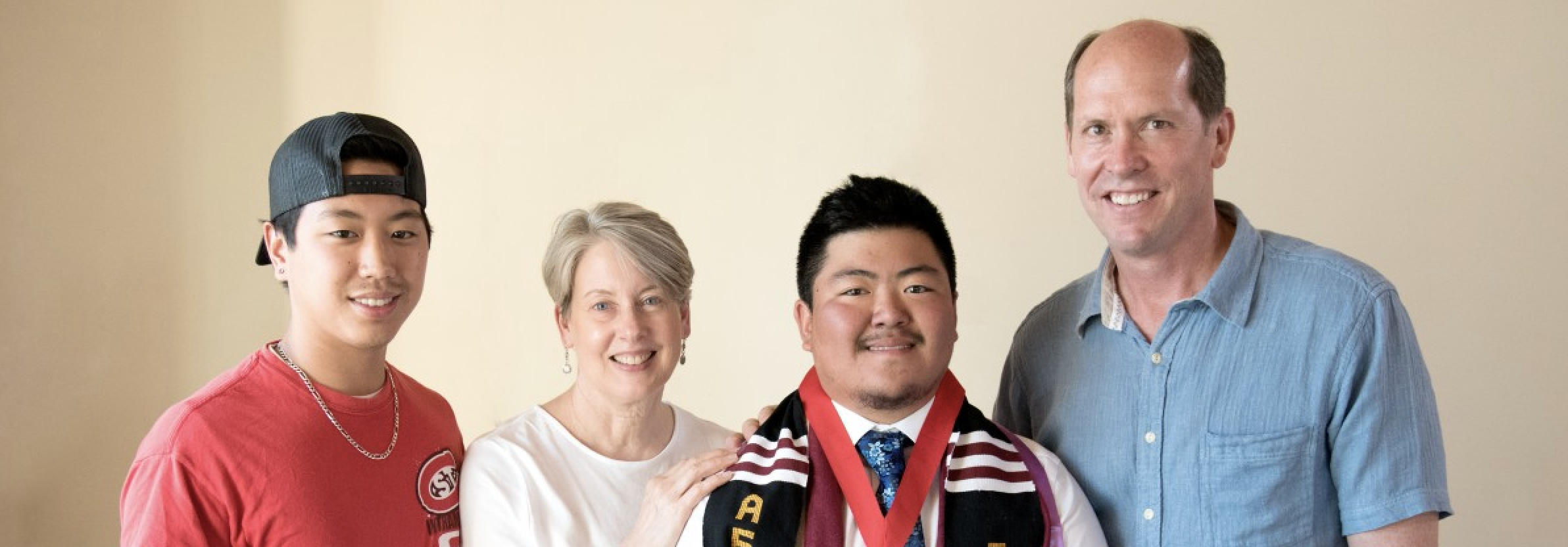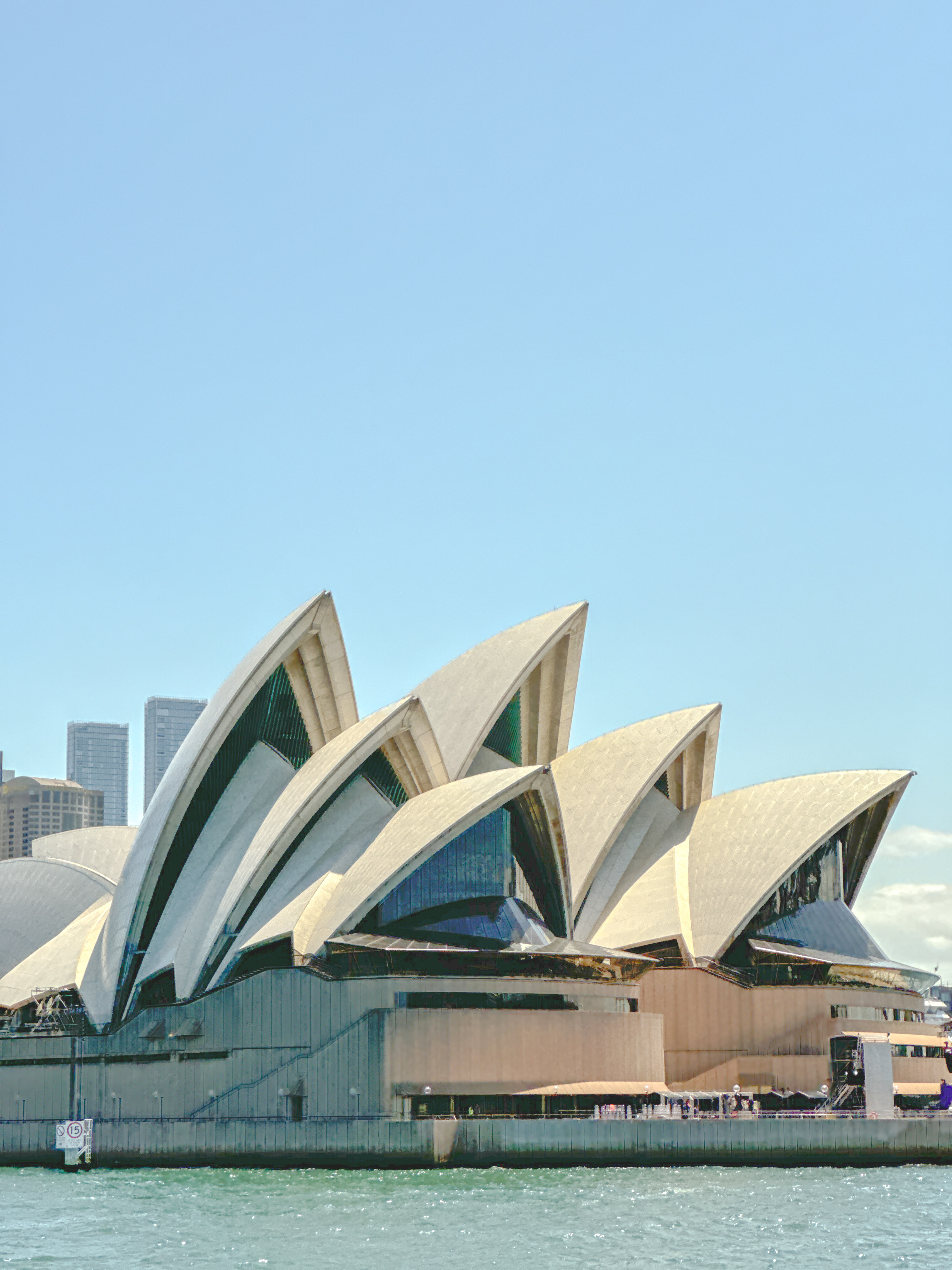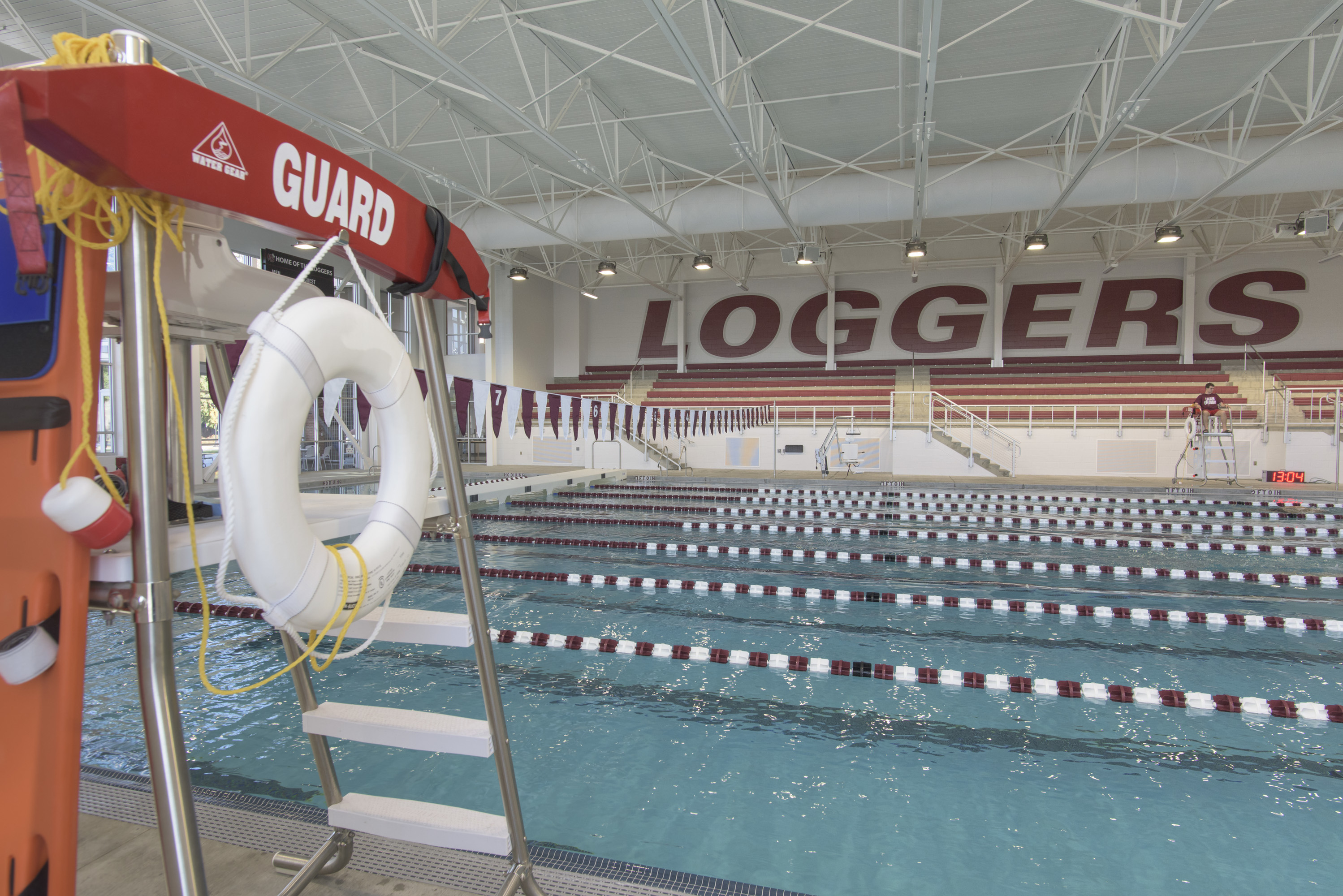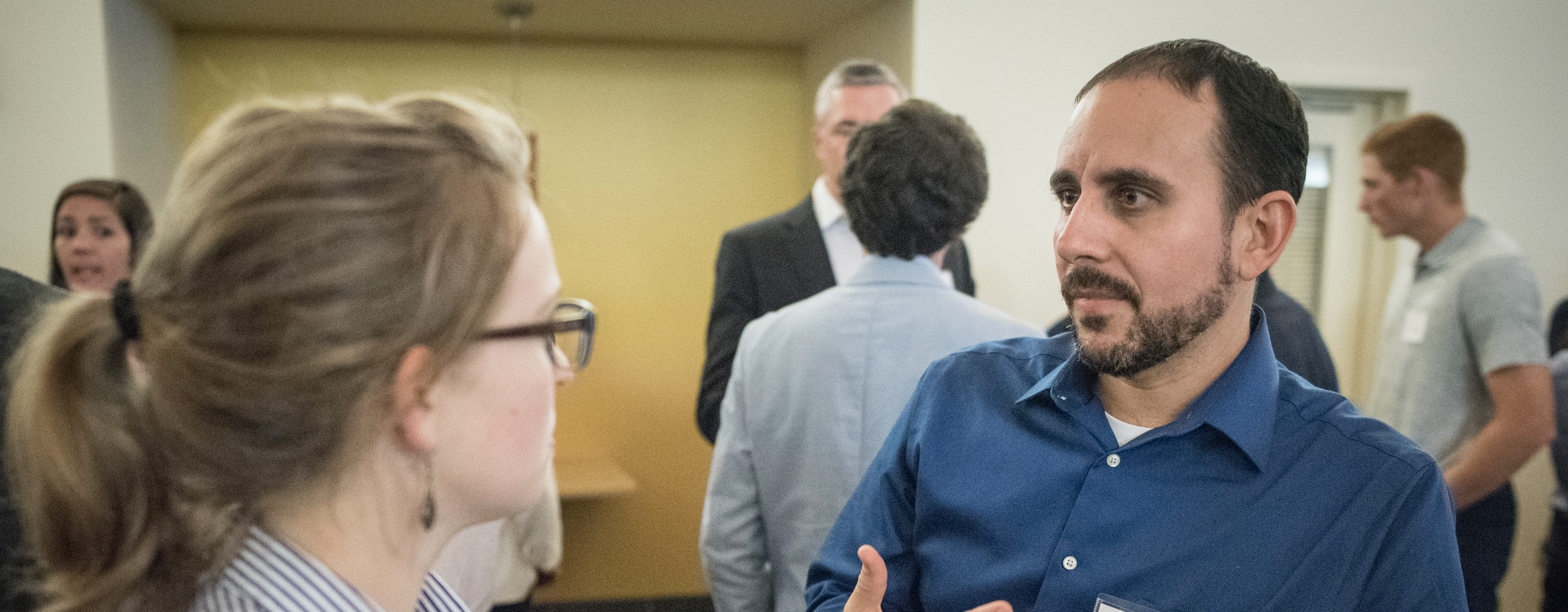Student teams compete to solve an alumni entrepreneur’s business problem
The clock is ticking. Only one hour remains before the winning team is chosen—and a trip to New York City and $500 are on the line. Kala`i Beck ’20 and his three teammates are huddled around a table in the student center’s Murray Boardroom, brainstorming ways to repurpose coconut husks and shells left over from the production of coconut water.
It’s a real problem being faced by Ben Minges ’11, founder and CEO of Copra Coconut Water. Each day, the business’s Thailand-based production facility extracts water from roughly 40,000 coconuts, leaving the outer husks, and Minges has been paying through the nose to have the waste removed. In need of a more sustainable solution, he called Puget Sound business and leadership professor Lynnette Claire last year and shared his frustrations. “Ben reached out and said, ‘Do you have any students who could help figure out what to do?’” Claire recalls.
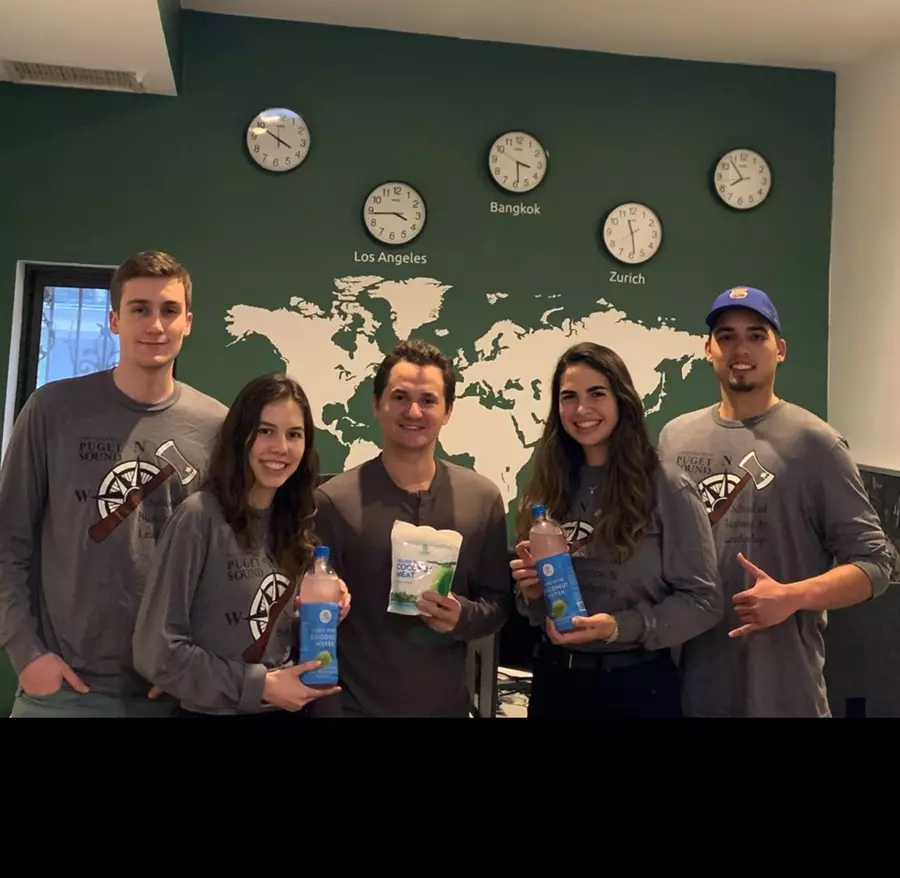
The two decided to present the dilemma at the college’s annual Innovate!Create! entrepreneurship competition, in which teams of students face theoretical business challenges and are tasked with finding solutions. Solving the challenges often requires “not only a tweak in the system,” Claire says, “but entrepreneurial principles, like developing a new line of business.” The 2019 competition was the first time a real-world problem was presented as the challenge prompt.
At 10 a.m. one Saturday last fall, 22 students from a range of majors and classes walked into the boardroom in Wheelock Student Center, ready to test their entrepreneurial mettle. They were split into six teams and introduced to Minges, who presented the issue of his business’s mounting coconut waste. Teams then had three and a half hours to brainstorm and develop their solutions before pitching them directly to Minges.
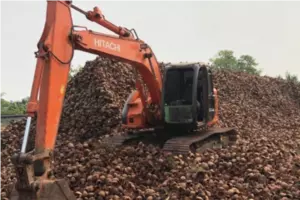
Photo courtesy of Prof. Lynnette Claire
International business major Kala`i Beck ’20 had competed in—and won—Innovate!Create! twice before. He urged his teammates, Nick Eberhard ’22, Victoria Helmer ’22, and Shirley Mazaltov-Ast ’22, to think simply. “Right now, [Minges is] paying $30,000 a month to get rid of these husks,” Beck told his team. “We focused on how to get someone to take that off his hands for free.”
The team’s solution proposed partnering with a factory that could turn the husks and shells into activated charcoal, a component found in water filters, and an ingredient in a variety of personal care items, such as toothpaste, deodorant, and skin creams. After some searching, Beck and his team identified a few factories located on the same Thai island as Copra’s production facility which could do the job.
Other teams suggested using the husks to create reusable shopping bags, peat moss-type materials, cement additives, and building materials. But the simplicity of Beck’s Team CoCo Carbon solution won over Minges. The team took home the $500 prize and, in February, spent a long weekend with Minges in New York City learning about Copra Coconut Water and life as an entrepreneur.
Both Beck and Claire say the challenge was a lesson in real-world limitations, especially financial ones. “Business in the classroom is not the same as business is the real world,” Beck says. “The up-front costs and capital costs of what some other teams were proposing were just too high.”
Claire agrees and admits that innovation and reality can sometimes be at odds with each other. “It’s interesting,” she says. “When we thought about, hypothetically, what would be [a] great [solution], innovation was a high priority. Ben thought he wanted something super innovative. But then, when presented with the riskier options, he realized, ‘Wow, how do I do this?’” An elegant—and sustainable—proposal won the day. “That was an interesting twist,” says Claire. “It’s a lesson in investment.”
In early February, just a few months after the Innovate!Create! competition, Minges hosted Team CoCo Carbon at the Copra Coconut Water offices in New York City. He is currently exploring his options with the factories identified by the team’s proposal in hopes of reaching an agreement.
